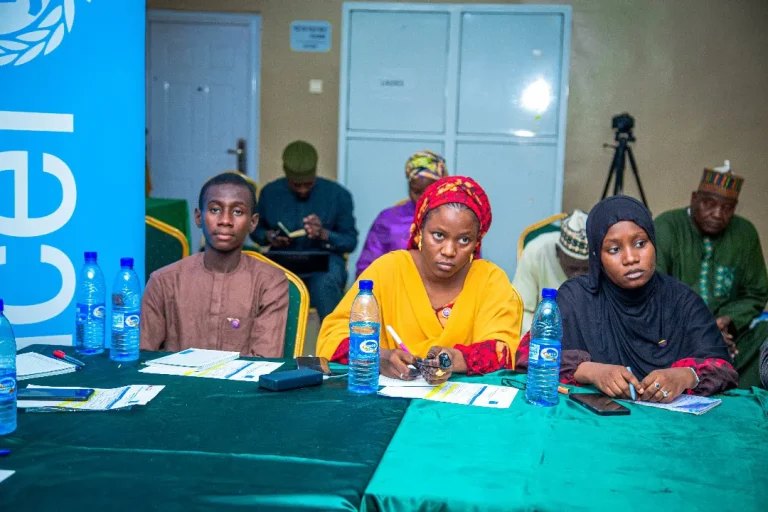At a modest training hall inside Sokoto Guest Inn, the energy was palpable — not the usual medical seminar vibe, but one filled with the resolve and hope of young people ready to change narratives and save lives. Rose Mary Joseph, a 200-level medical student at Usmanu Danfodiyo University, adjusted her UNICEF tag and stood tall before her peers. “We are not just creating awareness — we are saving lives,” she said, her voice steady and full of conviction. “As a medical student, I understand the science. As a girl, I understand the fear and the misconceptions.”
Rose is one of dozens of youth volunteers trained by the Sokoto State Government and UNICEF, with support from Global Affairs Canada, to become community ambassadors for the Human Papillomavirus (HPV) vaccine. The vaccine, which protects against the virus that causes cervical cancer, remains poorly understood and sometimes mistrusted in many communities across Nigeria. The resistance is often rooted in misinformation, cultural myths, and fear — barriers this new generation of advocates is determined to dismantle.
These volunteers are not just any youths — they are purpose-driven students drawn from tertiary institutions across Sokoto. They have committed themselves to lead with empathy, using their voices and platforms to engage communities, schools, and peers in the fight against cervical cancer, the second leading cancer-related killer of women in Nigeria.
One of them, Asmau Buhari Suleiman Dange, sees her role as a bridge between confusion and clarity. “This campaign gives us a chance to do something meaningful for our generation,” she said. “I’m ready to engage my peers through social media, speak in schools, and visit communities to make sure no girl is left behind.”
For Dr. Danjuma Nehemiah, UNICEF Health Specialist in Sokoto, the inclusion of young volunteers is a turning point. He led the technical session of the training, highlighting the urgency of the task at hand. “The real issue we are dealing with now is misinformation and community resistance. That’s why these young people are critical — they are the voices their peers and communities trust,” he explained.
Dr. Danjuma underscored the stark reality: cervical cancer is the second most deadly cancer affecting women in Nigeria, surpassed only by brain cancer. Yet, it is preventable. “The HPV vaccine is not only available, but also effective and safe. Early vaccination offers near-total protection,” he said.
The campaign will target communities in local government areas where vaccine hesitancy is still strong. These young advocates will use relatable language, social media savvy, and community rapport to tackle deeply rooted fears and suspicions. They will also work alongside religious and traditional leaders to ensure the message resonates across all societal layers.
But beyond the statistics and the strategy lies something more powerful — the human will to protect others. For these youth volunteers, it’s not just about public health. It’s about sisters, friends, daughters, and classmates. It’s about rewriting the story of health equity, one conversation at a time.
And as they return to their campuses and communities, armed not just with knowledge but with purpose, their voices — strong, informed, and compassionate — may just be the change Sokoto needs to turn the tide against cervical cancer.
By Mohammed Usman Binji


